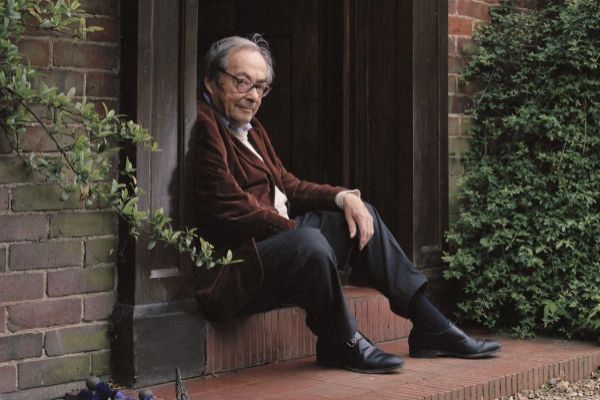- Readings: Five essential books by the wise George Steiner
- Obituary: The professor, philosopher and literary critic George Steiner dies at 90
- Opinion of Gregorio Luri. George Steiner, a jealous lover
Although there were many questions that were asked throughout his life, in the background of George Steiner's thought the same tearing always beat. The literary classics of which he nurtured in his childhood, that kind of toys that in the absence of television or youtubers read, memorized and loved with the passion that only a child feels for the hobby that illuminates his days, were the maximum proof of courage and dignity of the human being , yes, but they were useless. Or worse, they did not serve what human intellect and sensitivity were supposed to serve. They did not stop evil. They were not his antithesis or his antidote.
Kindness, talent, imagination and sacrifice committed to each work of art could dazzle and produce intense pleasure, but they did not prevent a great creator or a reader from Homer from getting up every morning to kill Jews or consciously contribute to the deterioration of democracy and coexistence.
The humanities do not humanize. It was the grim conclusion that came to a humanist who dedicated his life to the teaching of the humanities, and that he could never conceive his existence - and almost anyone's - without those summits of human imagination. The displacements he incurred were sometimes the product of that unsatisfactory paradox . If they wanted to do something for humanity, he told the students that they were eager to remedy human tragedies, it was best to give up their literary careers and study something else. Medicine, perhaps, to travel later to Africa or China to alleviate the suffering of the helpless. As literary critics, there was little they could do in that regard.
Perhaps the new critical currents that generated fervor in American faculties since the 1980s, post-structuralism and postmodernism, filled their heads with redemptive fantasies and convinced them that deconstructing a novel could make the world a fairer place, but they were deceived . All they got was to destroy the job to which he had dedicated his life.
For Steiner, interpretation and criticism were, like art creation itself or mathematics, a selfless enterprise. Not as bright as the creative act (another reason he faced post-structuralist critics, who thought they were as important, and sometimes more, than the authors they studied), but certainly exalting and somehow valuable. It helped to remember.
If totalitarianism corrupted language and sought oblivion, criticism preserved human memory . Steiner was a Jew who was saved from the Holocaust because his father knew how to interpret the signs of the time in time. In 1924 he left Vienna and settled in Paris with his wife, and then, in 1940, with George in the family and the Nazis on his heels, they were saved again by moving to the United States. Cultural criticism was not a hobby or an intellectual exercise. It was the key to their survival.
It is true that the passion for the classics indisposed Steiner against certain cultural aspects of the twentieth century. It was hard for him to accept that artistic creation had become mockery and irony, and that art was born without pretense of immortality, rather an orphan of its ephemeral existence. Nor did he enthusiastically see the mass culture , nor his ability to twin the cult and the popular in paradoxical and sometimes great ways. It was the price of freedom. Only totalitarian societies could impose the compulsory study of great works of art, and the result was always disastrous.
But perhaps more nuisance produced something else: that art could become a destructive agent. The irrationality of the artistic avant-garde frightened him, but he had the critical lucidity of identifying Dadaism as one of the most influential and corrosive forces of our time.
In recent years, dedicated to writing those enigmatic letters that can only be read in 2050 , he must have seen with horror how his most gloomy intuitions about politics and culture were confirmed in the figure of Boris Johnson. Because Johnson, a scholar capable of reciting Homer in Greek, did not defend that united and supportive Europe, refractory to patriot chauvinism, which Steiner always considered worthy of preservation. Using jocular childishness and Dadaist performance , Johnson managed to win an election that allowed him to launch the most corrosive political plan for Steinerian Europe. Johnson was the test. His project threatens Steiner's ethics, that universalism of Jewish origin , forged thanks to uprooting, which did not believe in borders but in the common possibility of understanding. In these wild times, your civilized voice will be missed.
According to the criteria of The Trust Project
Know more- culture
- Europe
- literature
- Philosophy
Literature Five essential books of the wise George Steiner
The Paper Sphere Claudio Magris: "Showing politically correct indicates weakness"
The Paper SphereAna Merino, the salvation of goodness

